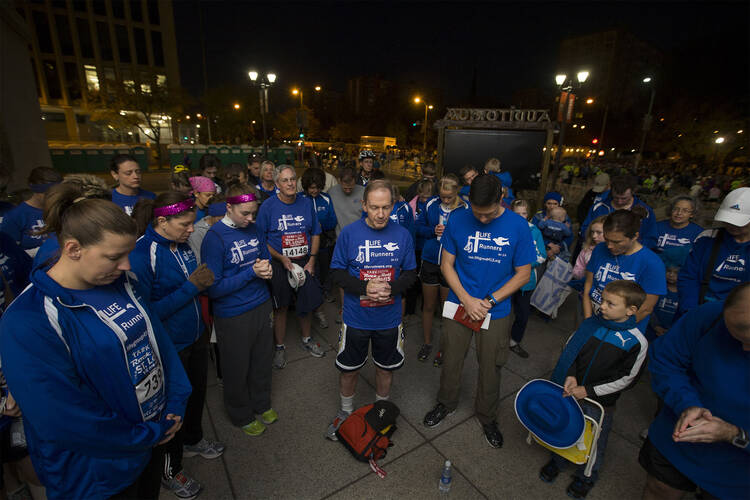In 1981 when I was training, at 48, for my first marathon — the New York — a man I had just met told me, “Once you run your first marathon you will never be the same again. There are two kinds of people in the world, those who have run a marathon and those who have not.” He was right. The change is true, not merely in that it swells the head a bit: after all it is a accomplishment not everyone can claim; but it also shrinks the ego considerably: you see for the first time the many thousands of people more accomplished, healthier, better looking, more courageous than yourself. Little old and elderly men and women and smiling twelve-year olds pass you on the left and right and will be waiting for you at the finish line, and your own body, in which you have run 40 miles every week of the summer and fall, threatens to betray you. But you keep running because you have friends in the race and in the crowds, because this mobile mob of a thousand souls is dragging you along, because your father when you were five told you never be a quitter, and because you are having a good time.
Running gives you a feeling of ownership for the surrounding territory. When I traveled more, on my second day in places like Cairo, Damascus, and Baghdad I would take off, running down long boulevards and along river banks and start feeling at home.
In Hanoi 20 years after the war I left my hotel for an early morning jog and discovered what seemed to be the whole city running with me — down to the urban lake where John McCain’s plane went down and in where his parachute landed him and a bunch of young men gathered around to quiz me: what was I doing here? “I have come to see you,” I should have answered, but couldn’t think of it then.
Running also gives you a chance to pray. When I see runners with earphones plugged in I think they are retreating into a private world based on someone else’s noise, screening out the various wonders and sounds of creation through which the Spirit tries to enter.
Why would the Boston bomber want to ruin all this? Kill and blow off the legs of men and women he has never met, shatter this physical and spiritual unity binding millions to one another? As this is written we do not know who is responsible. My own feeling is that it may not be a terrorist in the political sense but some sick, loveless soul with a wound of his own who may kill himself before our questions are answered.
Meanwhile I believe we will respond by running more, that the coming New York Marathon and next year’s Boston will call out greater crowds, not just to affirm the “American spirit,” but to testify to the friendships running has produced.
I ran the New York Marathon because when I was dean of Rockhurst College in Kansas City a student signed me up for a local half marathon without telling me, then joined me for the race. For the first time a realized I could actually run 13 miles. The next year, when I was dean of Holy Cross, a student friend literally tackled me and told me I would run the coming New York Marathon with him. For the next three years, joined by student friends, I ran the Boston, and in 1985 the New Jersey marathon. For all these races, we never qualified or registered; we just got at the end of the line and ran. About 8 years ago two discs in my spinal column slipped out and impinged on the spinal chord. The operation ended my running life. Now I take long walks, and when the New York Marathon jogs into Central Park I watch with special admiration as the handicapped, the blind, those in wheelchairs and their friends pass by with the same determination and pride as the stars who crossed the finish line four hours before.









A great essay. It inspires me both to write and run a marathon.